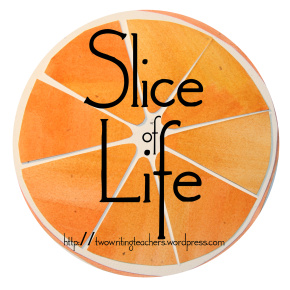
At the National Writing Project Annual Meeting in November (this post has been in my draft box for a bit of time), I attended a session by a representative of GlassLab Games, which has been working in a partnership with NWP folks to develop a video game app designed to teach elements of argument to middle school students.
The game is called Mars Gen One: Argubot Academy, and it is a free app from the Apple Store. Mat Frenz, of GlassLabs, was very knowledgeabout about game mechanics, and of why games are a natural way to pique the curiosity of students. He notes that good games can be an “engagement bridge” for students to learn difficult material, and the hope for Argubot Academy is that players “will master the mechanics of argument with the same passion as mastering the mechanics of Pokemon.” The game developers build some of the mechanics and look/feel/design of the game with echoes from the Pokemon universe.
Mars Gen One: Argubot Academy has a narrative of science, as the player is on a discovery mission and is forced to create “argubots” that are powered by the strands of strong argument claims and evidence. The player asks questions, explores the spaceship and then goes into “battle” against others with their argubots, seeing if their claims and evidence is strong enough to hold up to scrutiny. A teacher account allows you to track progress of students, and it charts out where strengths and weaknesses of the individual player/students are. That is all handy information.
I played the game a bit over the summer, when it was first released and promoted via NWP and Educator Innovator, and then again during the session, as Mat gave us an overview and tour of the game itself. I know a lot of teachers in the room were excited about. I have my slight reservations. First of all, my classroom does not have iPads, so for all practical purposes, the game is not in our future. I also found the game a bit too wordy, knowing my students as I do, although when I mentioned this is conversation with other teachers in the session, they disagreed with me. So, maybe it is my own perception. I am also not sure it would engage my students over multiple sessions, although Mat shared testimonials from teachers using the app, praising it as tool for engagement.
But, don’t listen to me. Give the app a try. It’s free, and a lot of thought has gone into the development. It might just work for you, particularly as we shift into higher gear away from persuasion and deep into argument. The game might be just the hook for your students.
Argubot Academy Overview from GlassLab on Vimeo.
Peace (in the app),
Kevin





.jpg)

